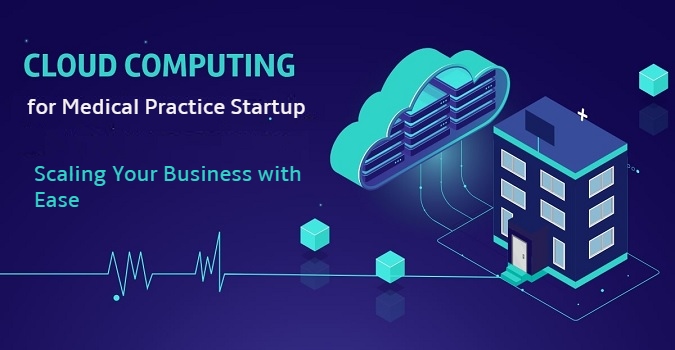In today's fast-paced environment, the Information Technology (IT) sector stands out as one of the…

Cloud Computing for Medical Practice Startup: Scaling Your Business with Ease
Cloud computing has revolutionized the way businesses operate, and the healthcare industry is no exception. For medical practice startups, cloud computing offers a powerful solution for scaling their business with ease. By leveraging cloud-based technologies and services, these startups can streamline operations, enhance collaboration, improve data management, and provide better patient care. In this article, we will explore the benefits of cloud computing for medical practice startups and how it enables them to scale their business efficiently.
Advantages of Cloud Computing for Medical Practice
Cloud computing has transformed the medical practice landscape by providing a range of innovative solutions. Here are some key areas where cloud computing can bring significant benefits to medical practice startups:
Streamlined Operations with EHR:
Cloud EHR systems enable medical practices to store, access, and update patient records securely and efficiently. By eliminating the need for paper-based records and manual data entry, cloud-based EHR systems reduce administrative burdens and enhance workflow management.
Telemedicine and Remote Patient Monitoring:
Cloud-based telemedicine platforms allow medical practice startups to offer remote consultations, and follow-ups, and even monitor patients remotely. These cloud solutions improve accessibility, convenience, and patient engagement, thereby expanding the reach of the medical practice beyond the physical clinic.
Enhanced Collaboration and Communication:
Cloud-based communication tools, such as secure messaging platforms and video conferencing solutions, enable seamless collaboration among healthcare professionals. Physicians, nurses, and administrative staff can securely communicate and share information, leading to improved coordination and better patient outcomes.
Scaling Infrastructure with Cloud Computing
One of the most significant advantages of cloud computing is the ability to scale infrastructure effortlessly. As a startup grows, its IT requirements increase and traditional on-premises solutions may not be flexible or cost-effective. Cloud computing offers a scalable infrastructure that can adapt to the changing needs of medical practice. Here’s how it facilitates easy scaling:
Flexible Resource Allocation:
Cloud computing allows medical practices to adjust their computing resources (such as storage, processing power, and memory) based on demand. Startups can quickly scale up during peak periods and scale down during slower periods, ensuring optimal resource utilization and cost efficiency.
Eliminating Hardware Costs:
By leveraging the cloud, medical practice startups can avoid significant upfront investments in hardware infrastructure. Cloud service providers handle the maintenance, upgrades, and management of the underlying infrastructure, allowing startups to focus on core business operations.
Rapid Deployment of New Services:
Cloud computing enables medical practice startups to deploy new services and solutions quickly. Whether it’s implementing a new telemedicine platform, integrating third-party applications, or expanding storage capabilities, the cloud provides the agility and scalability required for rapid deployment.
Overcoming Challenges and Ensuring Success
While cloud computing offers immense potential, medical practice startups need to address certain challenges to ensure success in their cloud adoption journey. Here are some considerations:
Data Security and Compliance:
Given the sensitive nature of patient data, ensuring robust security measures and compliance with regulations (such as HIPAA in the United States) is crucial. Startups should choose cloud service providers with robust security protocols and features, including encryption, access controls, and regular audits.
Integration and Interoperability:
Medical practice startups often need to integrate their cloud-based systems with existing on-premises solutions or third-party applications. Seamless integration and interoperability between different systems are critical for data exchange and workflow optimization. Choosing cloud solutions with robust integration capabilities is essential.
User Experience and Training:
To fully leverage the benefits of cloud computing, medical practice startups must provide a seamless user experience for both healthcare professionals and patients. Adequate training and support should be provided to ensure the smooth adoption and utilization of cloud-based tools and platforms.
Conclusion:
Cloud computing has become a game-changer for medical practice startups, empowering them to scale their business with ease. With the ability to scale infrastructure efficiently and cost-effectively, cloud computing enables startups to adapt to evolving needs and grow without the limitations of traditional on-premises infrastructure. By addressing challenges related to security, integration, and user experience, medical practice startups can fully unlock the potential of cloud solutions and establish a solid foundation for success in the ever-evolving healthcare industry.
If you are planning to start a new medical practice in Australia and aspire to become the preferred choice for patients, then contact MedicalIT.Services. Leave all your worries to us and focus on delivering high-quality services to your patients.
Also Read:



